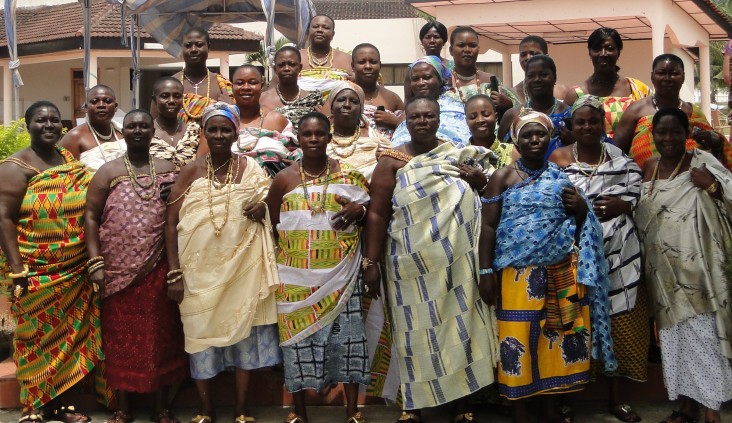Speeches Shim

In an effort to enhance Ghana's democratic governance systems, USAID's Democracy, Rights and Governance programs support improved local government, increased accountability to citizens, free and fair elections, and strengthened human rights.
Strengthening Good Governance
Decentralization and Local Governance
USAID’s local governance program strengthens the capacity of Ghana’s local governments to deliver basic services such as generating revenue, improved services, and building responsiveness to the needs of citizens. The program introduced mapping and database technology in five pilot districts in the Western Region. Notably, it drove increased local tax collections in those districts between 18 and 94 percent. The program supports the Government of Ghana’s initiative for street naming and house numbering, a principal goal of which is to increase local government revenue to fund improved services across the country.
Government Accountability
Ghana continues to pursue a decentralized government that can better provide the efficient, effective, and equitable local service delivery its citizens desire. Lack of accountability continues to hamper the effectiveness of key government institutions. USAID’s Ghana Strengthening Accountability Mechanisms (GSAM) Program works to strengthen accountability for improved development outcomes in almost half Ghana’s district-level governments. To this end, USAID works in partnership with the Ghana Audit Service to conduct performance audits of capital development projects in 50 districts. USAID also supports the Public Accounts Committee of Ghana’s Parliament and broad groups of citizen associations to reduce corruption and strengthen incentives for elected officials and technical authorities to improve accountability.
Civil Society Participation
Advocacy for improved government services
Through its GSAM program, USAID also supports civil society organizations (CSOs) at the grass roots level in 50 of Ghana’s 216 districts. CSOs monitor local governments’ management of capital development projects, including the construction of schools and health clinics, fostering greater accountability for their successful completion. CSO-led information campaigns under this program work to strengthen social accountability by providing citizens and district officials with detailed information on the quality of district infrastructural projects. Citizen scorecards will also be used to report on service delivery. Additionally, USAID works with local civil society organizations to monitor and report on corruption in the delivery of public services.
Supporting Elections
USAID provides support to the Ghana Electoral Commission (GEC) and some of Ghana’s leading CSOs to support the conduct of transparent, fair, and peaceful elections. In the run up to Ghana’s local elections, expected to be held in the second half of 2015, USAID has supported the GEC to bolster its communications outreach with the media and CSOs, including the participation of women and people with disabilities in the electoral process.
USAID will also support CSOs to conduct community-based elections monitoring for the upcoming local elections.
Promoting Human Rights
Engaging Vulnerable Populations
USAID recognizes that a key component of human rights is the equality of opportunity and access to public goods and services for vulnerable populations. To better bolster human rights, the promotion across sectors of inclusion and participation of vulnerable populations, especially women and persons with disabilities, is key. Thus USAID’s elections programming specifically focuses on improving the participation of women and persons with disabilities in electoral processes.
Elimination of Harmful Traditional Practices
While Ghana's constitution and laws recognize and guarantee the rights of all persons, some segments of the population live in communities where culture and societal behavior currently enable the perpetuation of harmful traditional practices. These include accusations of witchcraft leading to the exile of citizens, mostly women, from their communities to so-called Witch Camps. Other women are subjected to harmful widowhood rites, while some young girls continue to suffer the human rights violation of female genital mutilation. In responding to these challenges, USAID is providing support to the Ghana’s Ministry of Chieftaincy and Traditional Affairs and the National House of Chiefs to undertake field research and sensitization on harmful traditional practices with the goal of devising a strategy for their elimination.


Comment
Make a general inquiry or suggest an improvement.